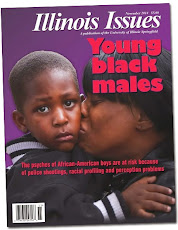By Meredith Colias
With same-sex marriage legislation stalled in the Illinois House, supporters hope today’s U.S. Supreme Court rulings will aid their push to send Senate Bill 10 to the governor’s desk.
Referring to the approximate number of federal marriage benefits denied to same-sex couples under the federal Defense of Marriage Act, part of which the court nullified, Gov. Pat Quinn in a statement that House members “now have more than 1,100 new reasons to make marriage equality the law in Illinois.” In a landmark decision, the Supreme Court struck down the Defense of Marriage Act (DOMA) provision that bars legally married same-sex couples from receiving federal benefits.
Illinois legalized same-sex civil unions in 2011, but those couples would still not be able to fully access federal marriage benefits because gay marriage is not legal in the state. Twelve states and Washington, D.C., currently allow it. For same-sex couples legally married in those states, the court’s 5-4 decision rejecting DOMA’s federal definition of marriage strictly between a man and woman opens the door to benefits ranging from Social Security, health care, tax breaks, adoption procedures, bankruptcy procedures, spousal veterans’ benefits and immigration.
The court ruling was “bittersweet,” Equality Illinois CEO Bernard Cherkasov said in a prepared statement. “For anyone who doubts that civil unions in Illinois created an unacceptable second-class status, the court's ruling is a powerful message that the state House urgently needs to join the Senate and pass the freedom to marry.” The Illinois Senate passed a bill on Valentine’s Day to allow same-sex marriages, but the legislation was not called in the House during the legislature’s spring session because sponsors said they did not have the votes to pass it.
David E. Smith, executive director of the Illinois Family Institute said the court’s decision did not “understand the importance or the actual reason why there are marriage laws in the first place. Obviously, this gives proponents of same-sex marriage another talking point, to point to the federal benefits and privileges” during the legislature’s fall veto session, “if it even comes up,” he said.
In the court’s majority opinion, Justice Anthony Kennedy wrote that the specific part of the law that limited the federal definition of marriage was unconstitutional because “the avowed purpose and practical effect of the law here in question are to impose a disadvantage, a separate status, and so a stigma upon all who enter into same-sex marriages. By creating two contradictory marriage regimes within the same state, DOMA forces same-sex couples to live as married for the purpose of state law but unmarried for the purpose of federal law, thus diminishing the stability and predictability of basic personal relations the state has found it proper to acknowledge and protect.”
Camilla Taylor, senior staff attorney for Lambda Legal, a courtroom advocacy group for gay civil rights, said the Supreme Court’s decision was “just thrilling,” and it would help make a case for same-sex marriage advocates in Illinois because the court rejected similar arguments to ban same-sex marriage in the past. “The conclusion is inescapable,” she said.
Paul Linton, a special counsel with the Thomas More Society, a public interest law firm that advocates for traditional marriage and against abortion, said he was disappointed by the decision but that because Illinois does not recognize same-sex marriages, it will not affect the state legally or court cases currently challenging the same-sex marriage ban.
Chicago Democratic Rep. Greg Harris, the sponsor of Illinois’ same-sex marriage bill, said he welcomed the court’s decision. Many same-sex marriage advocates severely criticized Harris for not calling for a vote, but Harris said he is moving forward on the issue. “It takes time and can be a long and difficult process.”
Subscribe to:
Post Comments (Atom)





No comments:
Post a Comment